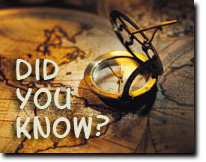6.03 Immunizations
Viruses can not be cured with antibiotics. Antibiotics are drugs that are only effective against bacterial cells, which we'll study in the next module.
 The body's immune system is often our only defense to fight viral infections. In some cases, drugs have been developed that interfere with some part of the virus's reproductive cycle.
The body's immune system is often our only defense to fight viral infections. In some cases, drugs have been developed that interfere with some part of the virus's reproductive cycle.
In addition, scientists and doctors have learned how to use the viruses themselves to create an immune reaction in a person so that on exposure to the "live" virus the person doesn't get sick. That is, they immunize the person against the virus.
Immunizations, often in the form of a shot, help the body have an immune response to the virus, helping them "fight off" an actual infection.
We call these shots vaccines. Vaccines are made out of a dead or weakened form of a specific virus. The human body can then produce antibodies that will attach to that virus if it ever enters the body. Antibodies are molecules made by the body's white blood cells; these molecules contain proteins to destroy viruses, bacteria, or other harmful toxins. Antibodies help to get rid of a virus before it has time to reproduce and kill healthy cells.
 OK, BioVenturers, as I review your questionnaires, the captain has had a game from the ship's arcade set up for you to play today while you wait. Play this game for a while and see if you can solve the viral mystery. It should help you understand viruses a little better.
OK, BioVenturers, as I review your questionnaires, the captain has had a game from the ship's arcade set up for you to play today while you wait. Play this game for a while and see if you can solve the viral mystery. It should help you understand viruses a little better.

